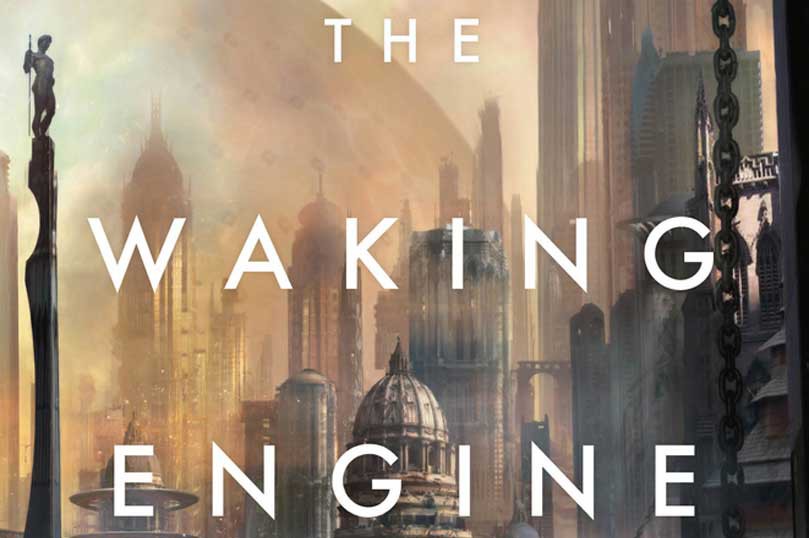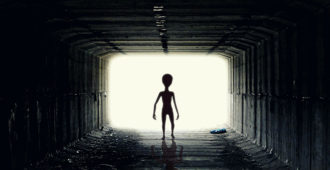Written by David Edison
“Times are bad. Children no longer obey their parents, and everyone is writing a book.” -Cicero, circa 43 BCE
An epigraph is a helluva thing: it can establish tone, mood, mise-en-scene, perspective; can replace exposition, and can turn a told story into a discovered story—all from a snippet of an external voice and the power of suggestion, and all before the story, book, or chapter even begins. When it comes to world-building, the epigraph downright teraforms.
For sheer epigraphical power, Frank Herbert’s Dune stands as the classic example—at least, it was Herbert who first captured my imagination with the mystery and authority of his chapter quotes. Within the novel proper, Princess Irulan figures as a minor character at best—but through the snippets of fragmentary text that Herbert invented to use as epigraphs, Irulan conjures all the mystique and otherwise-untold stories of Herbert’s Known Universe. Beginning each chapter with a taste of commentary, observation, elaboration, tangential rumination—it roused my attention in a way no other story had done before. My twelve year-old self fell into the seas of Caladan, staggered across the deserts of Arrakis, and tried to comprehend the complexities of a fictional universe in a wholly revolutionary way. Economy! Ecology! Philosophy! Glimpses of the future, the past, the suggestion of a reality that exists beyond the limited scope of page and protagonist.
I felt that Herbert, with his epigraphs, conveyed the scope of Tolkein’s endlessly self-researched worlds, but with the brevity of Wilde and the authority of Plutarch. The ancient texts of the Bene Gesserit shed light on their machinations in-novel, while the ecological philosophies of Pardot Kynes elevate the novel beyond what the foolish might call “mere” space opera. Although Irulan’s histories tip the hat to certain inevitabilities within the story, they conjure so much more mystery than they reveal and in the doing they become a wicked hook to catch a reader.
When I sat down to write The Waking Engine, I found myself writing about a metaverse in which everyone who’s ever died on Earth has continued to have lives, many of them, on other worlds in other universes. With not a little mischief, I wondered—what might they write, in future lives? And how might their stories help me tell mine?
This is how I ended up with Sylvia Plath, sitting on a park bench somewhere in space, arguing about the unfairness of death as a meritocracy.
With Cicero and Frank Herbert peering over my shoulder, I opened my first chapter with an invented quote from an invented poem that Plath might have written had she awoken from her suicide in the city I was building. In the doing, I reignited my romance with the epigraph and with the endless variety of questions it could answer for me:
What if Kerouac is still on the road? What if Truman Capote is still a gossipy backstabber, and what if he’s graduated from chumming with socialites to, say, Lao Tzu? How would a physicist like Michael Faraday react to the revelation that the universal laws he dedicated his life to understanding are, in fact, merely local phenomena in the universe of his birth? What about Elizabeth Kübler-Ross, author of On Death and Dying,—what would she think to learn that her six stages of grief were reiterated across countless reincarnations?
Writing epigraphs for The Waking Engine was sheer, unadulterated fun. There are lots of bits of writing a novel, I discovered, that are terrifying, agonizing, anxiety-producing and other not-fun things. Whenever I lost my nerve, I’d revisit my epigraphs and play: dressing up as Bede the Once-Venerable for a paragraph is an absolute tonic, no matter how poor Cicero continues to protest.
…………………………
From the Tor/Forge February 3rd newsletter. Sign up to receive our newsletter via email.
…………………………
More from the February 3rd Tor/Forge newsletter:
- On Building a Pillar to the Sky by William Forstchen
- The Angel Angle by Ramona Wheeler
- YA Grab Bag Sweepstakes








I once tried to track down that Cicero quote — what’s the Latin original? In which work or letter did it appear? — without success. I strongly suspect it of being apocryphal.
David – indeed it is apocryphal, or at least unoriginal! I was sorely tempted to include this link in the article, but: tangents. The quote is likely an ancient aphorism, and according to this research could be 7000 years old!
https://quoteinvestigator.com/2012/10/22/world-end/